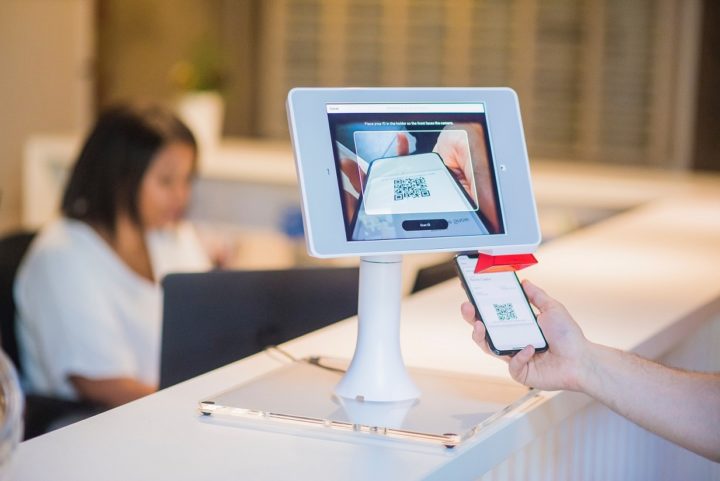It is becoming increasingly more evident that pharma companies clinical development organization must invest in digital transformation in clinical trials for better innovation culture and utilization of digital assets.
Why clinical trials must go ‘digital’?
Pharma companies R&D expenditure has grown by 45% in the last decade (2006-2016), on the worldwide scale, and has reached 156.7 billion USD in 2016 [1]. Over the past decade, the cost of clinical trials has amplified significantly to an average cost per patient increase by 150%. The major contributors are identified as drug pipeline increases and patient recruitment costs.
Furthermore, the cost of developing a drug that gains market approval is calculated at 2.6 billion USD, according to the report from Tufts Center for the Study of Drug Development [2].
Considering the above mentioned cost drivers and to reduce the overall costs associated with drug development, pharma companies are looking for innovations in R&D and particularly in clinical trials. To enable innovations in this space, pharma companies must investigate digital transformation in clinical trials business for quicker decision-making, leveraging computational methods and data analytics for improved clinical operations productivity. By transforming clinical trials into digital space, pharma companies and CROs alike, will improve the patient-centric strategies as well as patient recruitment, engagement and retention.
Where to start with digital transformation in clinical trials?
It is generally accepted today that ‘going digital’ has a potential to revolutionize the way clinical trials are planned, designed and executed. However, the next question that imposes itself immediately is how you do that. We hear a lot about the way new technologies like Artificial Intelligence (AI), Machine Learning (ML), Blockchain etc., are poised to change the way we run clinical trials, but the use cases are primarily focused around capabilities that are still too far into the future. So, how do you start your digital transformation of clinical trials journey?
First thing to make clear is that ‘going digital’ is less about technology and more about the way we transform our Clinical Development organization to make it ready for the digital age. Our biggest problem is not the availability of the technology but of our willingness and readiness to use it. The processes and the way we do things in Clinical Development require the transformation in themselves before the technology can be applied and empower our workforce. Therefore, before any technology is even considered essential maturity in the Clinical Development organization is required, including:
- Determining the unique needs of all clinical trial stakeholders
- Defining the digital clinical trial strategy
- Determining feedback loop of all relevant learning back into R&D organization
- Define the KPIs and measures of your digitization success
At intilaris, we see the digital transformation in clinical trials approach being taken in 3-D steps/phases:
- Diagnose
- Discover
- Deliver
Those essential digitization steps can be scoped to match pharma’s appetite for change and can be made iterative for addressing the digitization of clinical trials in cycles.
Diagnose: where are we and where we want to go with clinical trials digitization?
This phase of digital transformation in clinical trials deals with comprehensive look at the current business challenges regarding clinical trials. During this phase we consider the way how work is done today and how that work can be transformed and empowered in the future through better application of digitization. We would encourage the pharma clinical development operations to consider ways how the process of, for example, clinical protocol planning, development could be made more efficient and where and if use of AI could make sense. Furthermore, one needs to consider what is already done in this field and where are the ‘low hanging fruits’ in our organization – like, can we make existing data from clinical trials machine readable and what is the best way to do that?
Discover: what are the current trends in clinical trials digitization and where can we expect the biggest impact for our organization?
In the Discover phase of the clinical trials digitization we take a futuristic perspective at the clinical trials and ask ourselves how the digital clinical trial processes would eliminate the current challenges and risks and would enable us to be a more patient-centric organization. We look at major process areas
- Study Planning and Design
- Site Selection and Setup
- Patient Engagement and Recruitment
- Trial Monitoring
- Clinical Data Management
- Analysis and Reporting
- Study Submission
and discuss how the digital clinical trial landscape would fit your organization the best.
Deliver: how do we select the right solutions for digital transformation in clinical trials and bring them into place?
To be in position to select the right technology solution, pharma companies must consider cross-functional collaboration and process transformation first. Too often, we are witnessing the transformation projects in long delays or ending in failure. The primary reason for that is starting with technology first and trying to align the way we work. However, exactly the opposite must be done – start with holistic approach to process – process first. We are not in an era of technology shortage but we are in the need of process innovation that makes us ‘work better’ – technology solution can than be selected.
Please reach out to us for an independent and expert consultation on this topic.
[1] Association of the British Pharmaceutical Industry (ABPI), Accessed on 13 June 2019, www.abpi.org.uk/facts-and-figures/science-and-innovation/worldwide-pharmaceutical-company-rd-expenditure/
[2] DiMasi JA, Grabowski HG, Hansen RA. Innovation in the pharmaceutical industry: new estimates of R&D costs. Journal of Health Economics 2016;47:20-33.


